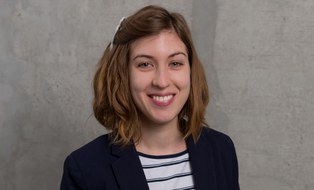Mobility-supporting Rehabilitation Clinics
This PhD project is focused on the relationship between the design of physical rehabilitation clinics and the stroke patients’ mobility. The goal is to determine which features of the built environment of rehabilitation clinics support and hinder patients’ independent mobility.
Stroke is a major cause of serious long-term disability in adult population and it mostly affects people over 65 years of age. Due to demographic change and the increasing incidence in younger population, the number of stroke survivors is expected to rise in the future.
Rehabilitation clinics, where inpatients spend four to six weeks on average, are buildings that rarely follow the organisation of stroke care. This incompatibility results in many stroke patients who encounter barriers in the physical environment of rehabilitation clinics, as well as in general patient inactivity during the day. This is in contrast with the main goal of rehabilitation: to recover mobility.
In this research study, two types of mobility are analysed: scheduled (going to therapies, scheduled meals, appointments, etc.) and non-scheduled (voluntary) mobility. Two research methods are used to investigate the relationship between the design of rehabilitation clinics and the stroke patients’ mobility in seven German rehabilitation clinics: floor plan analysis and post-occupancy evaluation (POE). Post-occupancy evaluation includes shadowing (patient observation), patient questionnaires and staff questionnaires.
The final aim is to create a set of design guidelines for mobility supportive rehabilitation clinics. These guidelines could be used for the redesign of existing rehabilitation clinics and for the design of future clinics.
Mobility-supporting rehabilitation clinics - Architectural design criteria for promoting stroke patients’ independent mobility and accommodating their changing spatial needs during the transition towards recovery (Dr.-Ing. Maja Kevdzija Link zur Publikation)
This PhD project was funded by the European Social Fund (RL ESF Hochschule und Forschung 2014 bis 2020, no. 100235479).
 © K. Lassig
© K. Lassig
wissenschaftliche Mitarbeiterin
NameDr.-Ing. Maja Kevdzija, EDAC
Eine verschlüsselte E-Mail über das SecureMail-Portal versenden (nur für TUD-externe Personen).
Professur für Sozial- und Gesundheitsbauten
Besuchsadresse:
BZW, 1. OG Raum B111 Zellescher Weg 17
01069 Dresden
